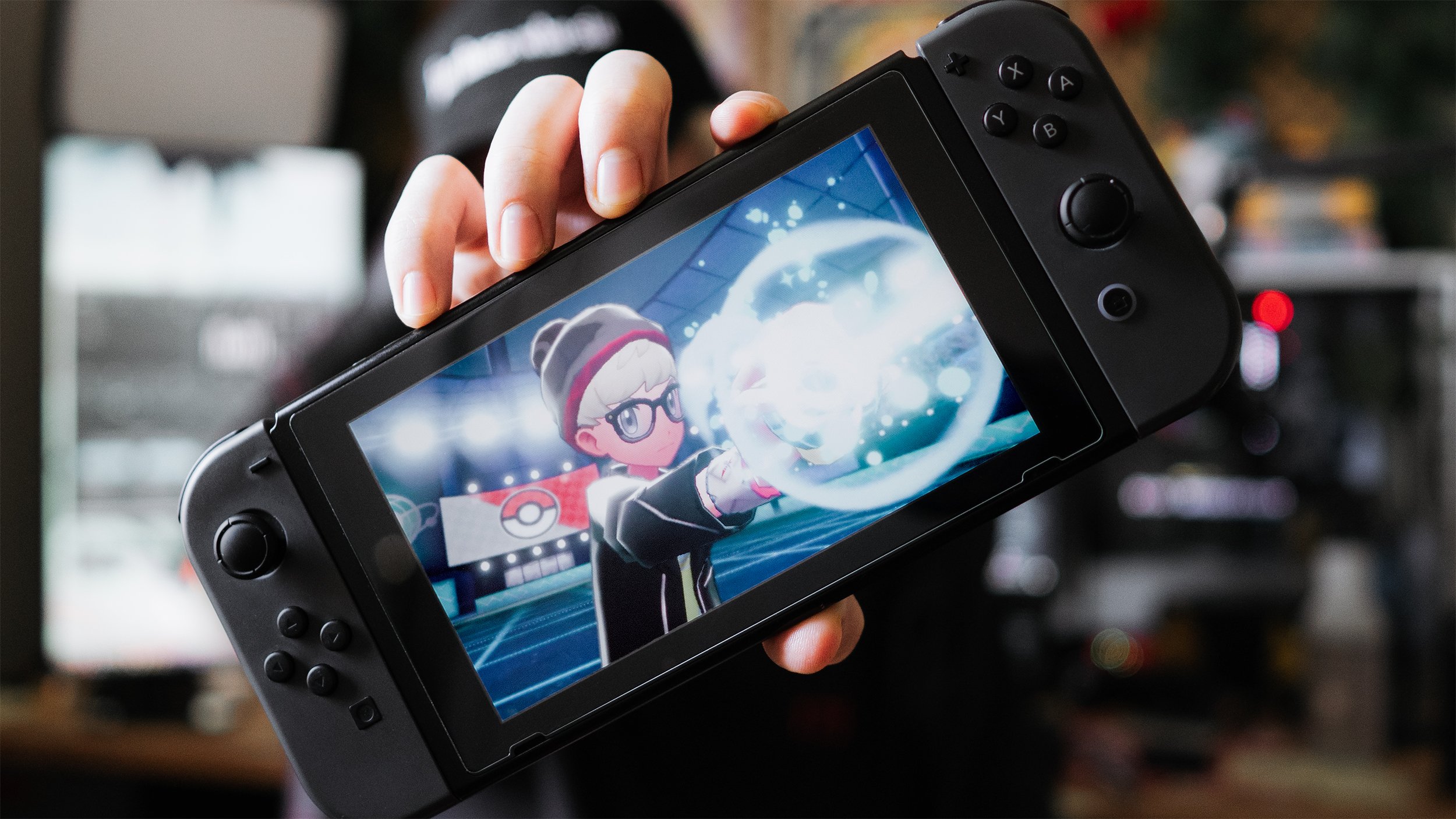
Coming from Single Battles
7min 16sec read
Start here if you have some competitive battling experience in Single battles.
Written by Aaron Traylor
Introduction / Beginners, Start Here
If you’ve played a lot of Single Battles, your experience may help you out in VGC, but many of the important facets of Singles don’t apply in VGC battling– and it’s important to know how they are different. There are only two main differences between VGC and Single Battles, but they affect how the game is played in lots of ways.
VGC Battles are Double Battles
This is the most obvious difference-- in Single Battles, you have one Pokémon on the field at a time. In Double Battles, you have two. Let’s break down how that changes the battle.
Your Pokémon Help Each Other
In Single Battles, it’s your active Pokémon versus theirs, unless a player switches. In Double Battles, your Pokémon can interact and help each other out. One simple way to do this is the double target-- both of your Pokémon use their attacks on one opposing Pokémon. Double targeting allows players to aggressively target Pokémon and quickly take knockouts before their opponent can respond.
EXAMPLE
Pokemon can work together in Double Battles to turn an unfavorable matchup on its head. In the Single Battle below, Charizard can’t defeat Excadrill on its own, despite dealing super effective damage. However, in the Double Battle, Hydreigon is able to add just a little damage to knock out Excadrill before it moves.Protect
Nearly every Pokémon carries Protect in Double Battles. Protect allows you to take advantage of how your Pokémon support each other, and to prevent your opponent from taking a knockout in the moment-- massively reducing their options. See our Protect guide for more if you’re curious.
EXAMPLE
Protect can save your Pokemon from taking too much damage, and allow your other Pokemon to act freely. In this scenario, the Excadrill and Moltres player might expect-- or “predict”-- the double target attack onto Excadrill. They use Protect to put themselves in a winning position.See it in showdown here.
Counters and Checks
In Single Battles, you might have one Pokémon that “counters” another by stopping it dead in its tracks and forcing it to switch out or risk fainting. Because the interactions between all four Pokémon on the field can be complex, it’s hard to find Pokémon that are always going to “counter” another. If a Pokémon is challenging for you to face, you might need more than one Pokémon that’s strong against it.
EXAMPLE
“Countering” a Pokemon in Double Battles is more challenging than in Single Battles, because it’s not enough to resist the Pokemon’s damage and threaten to knock it out or otherwise disrupt it. In the below battles, we compare a situation in both Single and Double battles.EXAMPLE
Furthermore, because there are two Pokemon on the field, it can be challenging to truly “counter” a Pokemon, because it may be protected by its partner in some way.See it in showdown here.
Be Careful Setting Up
In Single Battles, you might be able to boost your Pokémon’s stats or use healing moves without your opponent having much counterplay. Some Pokémon can threaten to “sweep” an opponent's team after getting a boost or two. Don’t expect the same luxury in Double Battles. If your Pokémon is bulky and ekes out a game over many turns, your opponent can either double target to threaten it quickly, or double target its partner until your bulky Pokémon is the only one left. Conversely, if you try boosting offensively with a Pokémon with low defensive stats, your opponent can threaten to remove it from the field with either of their Pokémon. Setup is still possible in Double Battles-- you’re going to rely on moves such as Follow Me and Fake Out, which might only buy you a turn or two. For this reason (and several others), “stall” tactics that are effective in Single Battles are much less effective in Double Battles.
Spread Damage
In Double Battles, you’ll have to select targets for your moves. Most moves just hit one Pokémon, but some moves hit both enemy Pokémon at once, such as Eruption and Water Spout. Certain moves such as Surf or Earthquake affect more than just one opponent: they affect every Pokémon on the field, including your partner! When a move would hit more than one Pokémon (even Protecting Pokémon), it’s going to have its damage reduced by 25%.
EXAMPLE
Here’s a quick look at how drastic the difference in damage can be when there’s one target versus when there’s two targets.
Singles (Level 50):
252 SpA Life Orb Charizard Heat Wave vs. 252 HP / 4 SpD Bronzong: 166-198 (95.4 - 113.7%) -- 75% chance to OHKO
Doubles (Level 50):
252 SpA Life Orb Charizard Heat Wave vs. 252 HP / 4 SpD Bronzong: 125-148 (71.8 - 85%) -- guaranteed 2HKO
Doubles Moves
There are a handful of moves that are especially important in Double Battles that are worth keeping in mind. These moves include:
Protect: As explained above, Protect prevents one of your Pokémon from taking damage while the other one moves freely.
Fake Out: Normal-type attack with increased priority that always makes the opponent flinch. This move can only be used when it’s the first turn that this Pokémon is on the field.
Follow Me / Rage Powder: Redirects all attacks to the user, thus protecting the partner. (Opposing Grass-types can still attack you through Rage Powder, but not Follow Me).
Helping Hand: Gives a boost to your partner’s attack for the turn.
Ally Switch: Switches your left Pokémon to your right side, and vice versa.
Wide Guard: Protects your team from spread damage moves.
Icy Wind/Electroweb: These moves don’t deal very much damage, but they do drop each opponent’s Speed by 1 stage.
Tailwind: Doubles your Pokémon’s Speed for 4 turns.
Trick Room: Reverses the order in which Pokémon move in for 5 turns.
You only use 4 Pokémon in a battle
The second main difference between VGC and Single Battles is that in VGC, you see all 6 of your opponent’s Pokémon, and then pick 4 of yours to bring to a battle, while your opponent does the same. This impacts the game in some subtle but important ways:
Games are Faster
VGC games take much fewer turns on average than most Single Battles, which can take 50 or more turns. VGC games take 10 to 12 turns (10-15 minutes) on average.
No Hazards
Because VGC games are much shorter, and more happens in one turn, there’s rarely any time to use the “hazard” moves, such as Stealth Rock, Spikes, Toxic Spikes, and Sticky Web. And because each player only has 4 Pokémon, they just don’t do very much in the long run. VGC players switch their Pokémon in and out just as much as Single Battles players do, but these moves are rarely effective, and are not used for the most part.
Picking a Lead / Team Preview
In Single Battles, you pick one Pokémon from your team to start out the battle-- this is often a “lead” Pokémon, or a Pokémon specifically designated to lead. In Double Battles, rather than having one Pokémon set the pace on each side, each player has two-- your Pokémon are going to have to work together to find success. Furthermore, because you only bring 4 Pokémon to a battle, your two lead Pokémon make up a full half of your team! Rather than having one fixed lead, most teams are more complicated. At the simplest level, some teams may have two complementary Pokémon to take advantage of some synergy, such as Drizzle Politoed and Swift Swim Kingdra. These combinations are informally called modes, and a simple strategy is to lead with a mode.
Not every team has to have that sort of synergy with their leads, however. Most players usually have some Pokémon that they prefer to lead with, and some Pokémon that they prefer to close the game with, and make a plan when they see their opponent’s team. If you’re feeling overwhelmed, we’ve got a guide to Team Preview to get you started.
Wrapping Up
Single Battles can give you some great groundwork for playing VGC, but the two battle styles are pretty different. Double Battles are pretty chaotic, especially in comparison to some of the slower-paced Single battle play. It will likely take a little bit of time to get used to the pace of Double Battles, but in time playing will feel just as natural.

